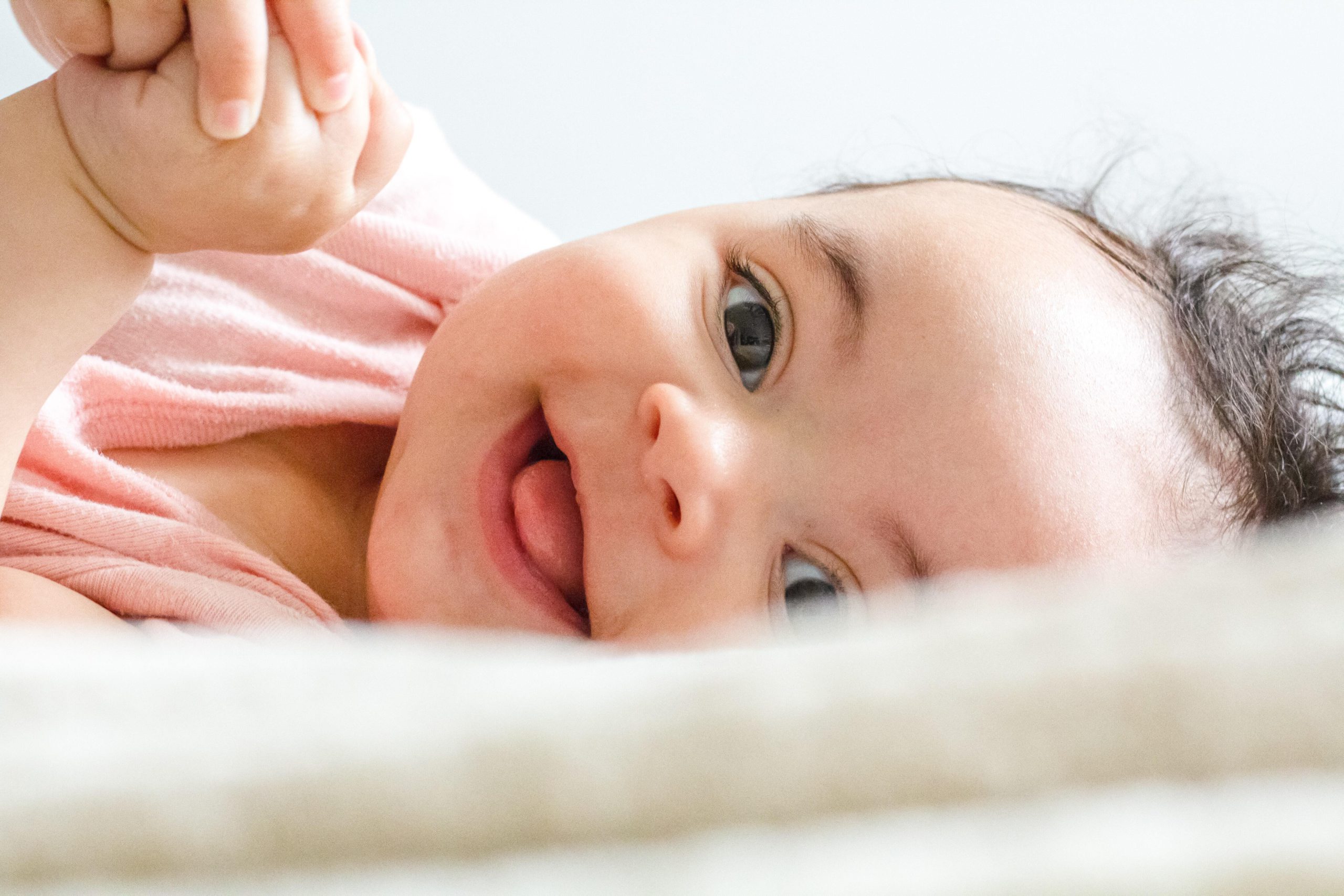
GET STARTED WITH A FREE CUSTOM SCHEDULE AND PLAN OVERVIEW ON OUR MOBILE APP →
TRY BATELLE FOR FREE →

Reaching the 9-month mark with your baby can be a time of joy, discovery, and… yes, sleep disruptions. If you find yourself up in the middle of the night, you’re not alone. It’s entirely possible that your little one is navigating the waters of the 8-10 month sleep regression.
Development doesn’t follow a strict calendar, and there’s a whirlwind of growth and learning happening during these months, all of which can influence sleep habits. In this blog, we’ll shine a spotlight on how increased mobility, particularly the act of pulling to standing in the crib, can play a pivotal role in these sleep disturbances. If you’re curious about other factors like separation anxiety that can also disrupt sleep at this age, check out our blog on the 8-month sleep regression.
A sleep regression is when a baby, who’s been sleeping soundly, suddenly has trouble staying asleep or resists sleep altogether. The 4-month sleep regression changes the very structure of a baby’s sleep. However, disruptions at 8 or 9 months often tie back to new skills your baby is picking up. Even though we call them ‘regressions’, your baby’s ability to sleep isn’t getting worse; it’s just disrupted.
Your 9-month-old baby is likely on the move in various ways. Whether they’re scooting, crawling, or even pulling themselves up to stand, each new skill is a big milestone in their development. But as they explore these new ways of moving, it can also bring changes to their sleep patterns. Especially when they start pulling up to stand in their crib, it can introduce new nighttime adventures and challenges.
A study by Aaron DeMasi and his team from the City University of New York looked into how babies moving more affects their sleep. Here’s what they found:
Your baby is learning a lot right now, and that can change their sleep. Here’s what might happen:
Remember, it’s normal for sleep to change when babies learn new things. With some patience and small changes, things will get better.
While increased mobility plays a significant role, other developmental changes can also influence sleep patterns:
Reaching the 9-month mark can be a time of change for many babies, and as a parent, you might notice:
Most parents find the 8-10 month sleep regression lasts between 2 to 6 weeks. Every baby is different, though. Remember, as tough as this phase can be, it’s temporary and is often tied to big developmental steps forward.
This can be a tough time for both babies and parents. Here are some tips:
As parents navigate the challenges of the 8-10-month sleep regression, two common questions arise: Would sleep training help, and is it advisable to sleep train during a sleep regression? The answers aren’t straightforward, but there are several factors to consider:
Sleep regressions are a natural part of development and can’t be avoided – especially in the first year. In fact, avoiding them would mean that your baby isn’t growing and evolving, which isn’t what any parent would want. There’s never going to be a “perfect” time to work on sleep training – the early years are a whirlwind of developmental changes, teething, illness, and environmental changes like starting daycare or moving from room sharing with you to their own room.
However, one potential benefit of undergoing some form of sleep training is that future regressions might be navigated with less disruption if a strong sleep foundation has been established. It’s essential to choose a method that aligns with your family’s values and comfort level. Every baby and family is unique, so what works for one might not work for another.
The 9-month mark is a big one, full of changes and challenges. But with understanding, patience, and the right strategies, you and your baby can navigate it together. Always reach out to your pediatrician if you have concerns. For more on sleep regressions at different ages, check out our other blogs.
If you want to check your child’s sleep schedule – you can use our free sleep generator tool.
